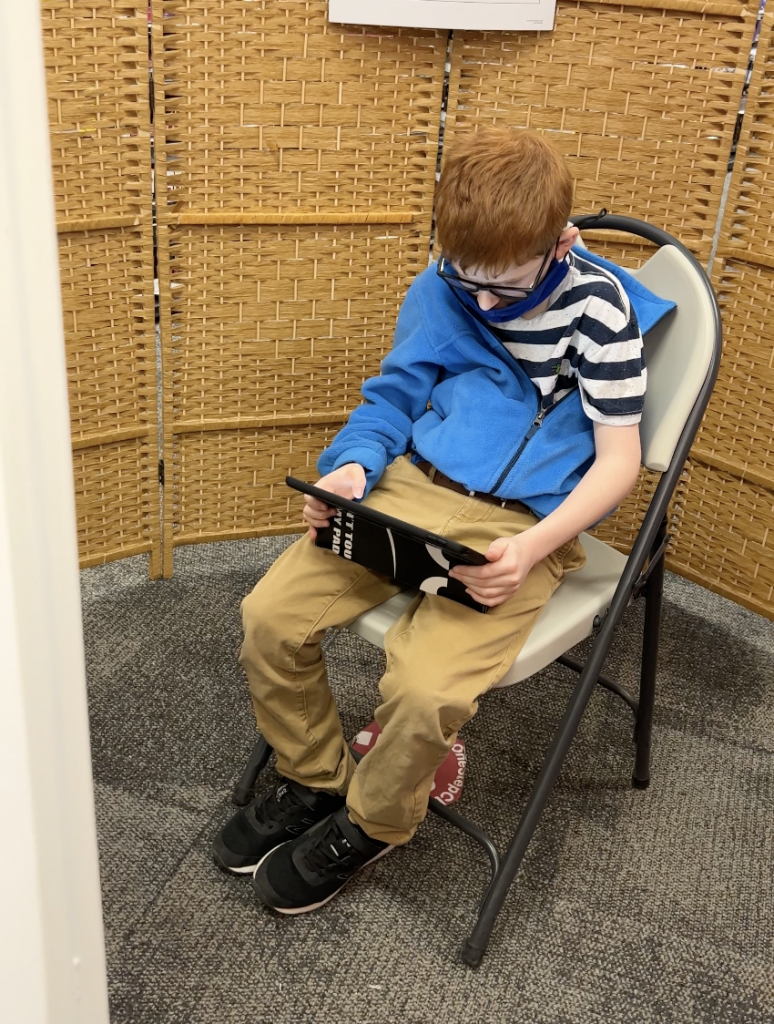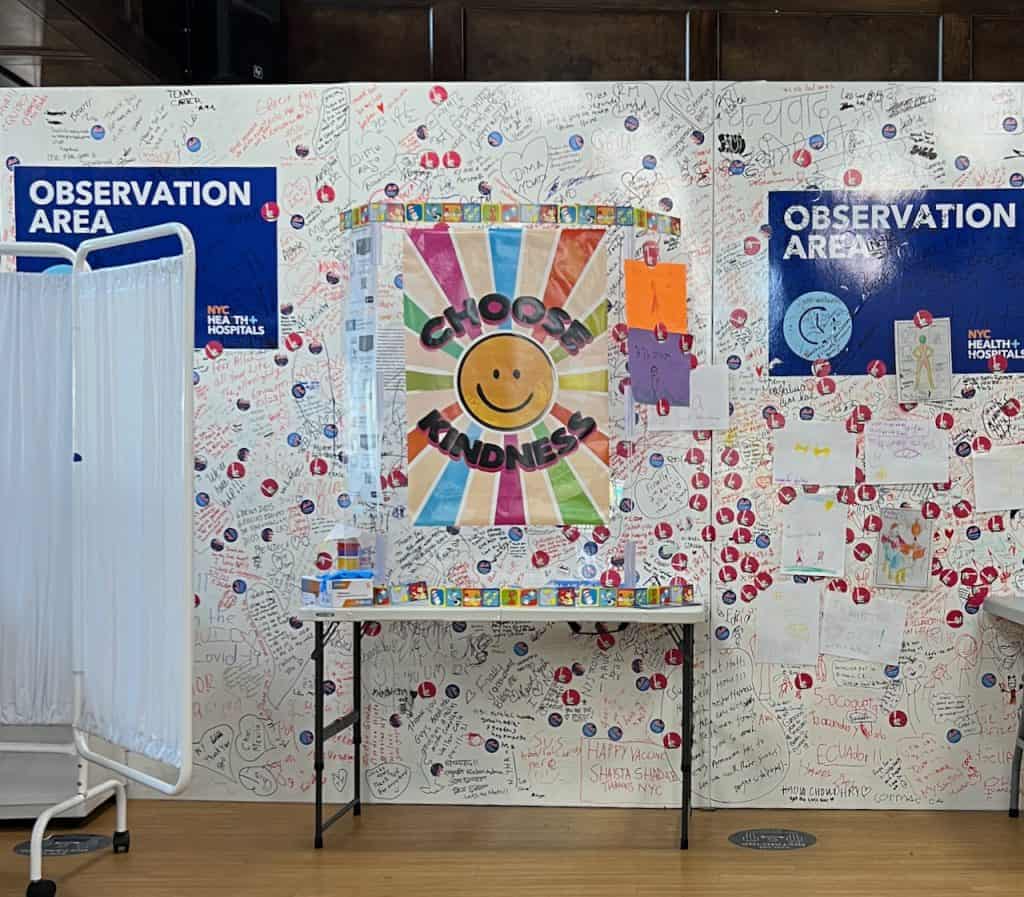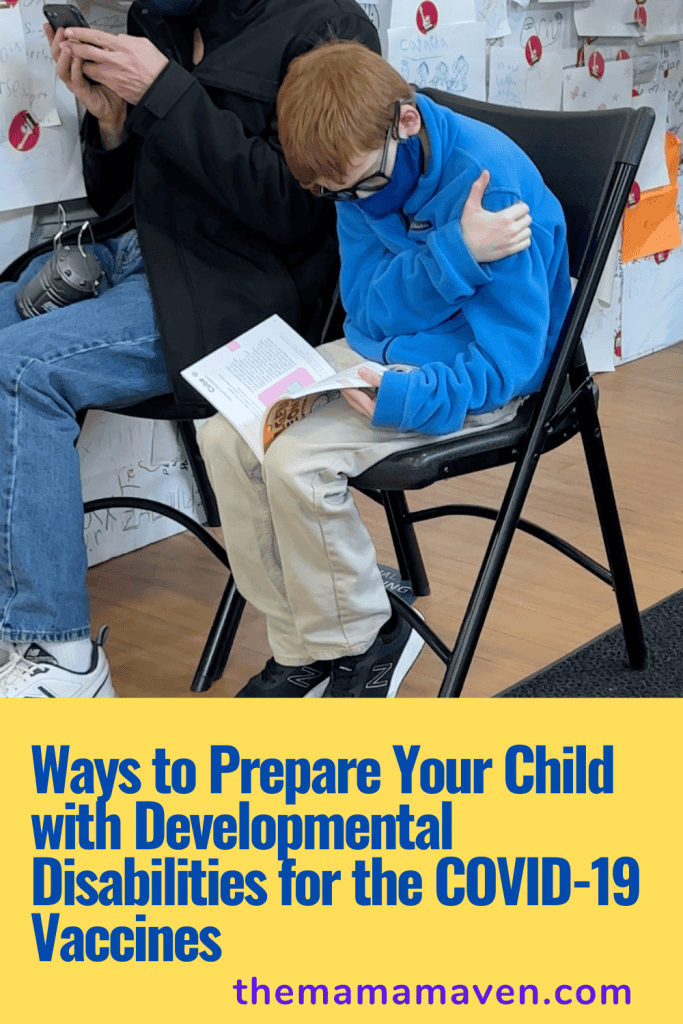Thank you American Academy of Pediatrics (AAP) for sponsoring this post.
As parents, we made the choice to get our youngest, who has developmental disabilities, vaccinated in late fall for COVID-19. People with disabilities of all ages are at an increased risk of contracting COVID-19 and may experience greater morbidity and mortality. Make sure you have a conversation with your child’s pediatrician about the COVID-19 vaccines. The COVID-19 vaccines currently authorized and approved for use are a safe and effective way to prevent severe illness and hospitalization from COVID-19. If you have a child with a developmental disability, chances are that doctor’s appointments, especially getting vaccines, are very stressful for you and your child. Your pediatrician will work with you to make your child comfortable and will answer any questions you may have. My youngest child has different special needs than my older child, but anything medical is always difficult for him to handle. He has anxiety, amongst other issues and he gets in fight or flight mode. The COVID-19 vaccines are the best way to protect children with developmental disabilities from COVID-19. While it’s not easy, there are many ways to prepare your child with special needs or developmental disabilities for the COVID-19 vaccines.
When my youngest became eligible for the COVID-19 vaccine a few years ago, we immediately booked an appointment. He knew that he needed the COVID-19 vaccine. His older brother is immune-compromised, and he also spends a lot of time with our elderly parents. The rest of our family was already vaccinated and boosted. We had talked about why we needed him to be protected and why it was so important. Millions of kids and teens have already been safely vaccinated. We have all been vaccinated and his brother and sister have been vaccinated as soon as they were allowed to.

Unfortunately, even with all the prep we did, my son yelled so much that we weren’t able to get him vaccinated at the pharmacy.
He understood very well why he needed to be protected against COVID- 19, but his anxiety took center stage. He couldn’t manage it enough to be calm.
Unfortunately our pediatrician’s office wasn’t offering any COVID-19 vaccines – which was too bad because my son trusts our doctor and that would have been a calm quiet setting that he would have thrived in. After speaking with another special needs mom, I decided to find a different location that would know how to work with kids with developmental disabilities. A site was recommended to me, that was great with children who had developmental disabilities would be the place to go and I got an appointment for the next day.

It was a completely different experience. When I had booked the appointment, I was able to ask for a quiet area beforehand.
The intake coordinator was calm and reassuring and had seen my request. She led us over to a quiet area with a nurse. While my son still had a really hard time, the nurse helping us was understanding. She spoke calmly and treated him kindly. She understood that he had a developmental disability and wasn’t going to handle this like a Neurotypical child.
While he was just as difficult when he got the final COVID-19 vaccine, having a staff that was able to be compassionate went a long way. A compassionate pediatrician like the one we have makes a huge impact. Our pediatrician recommended that my son get the vaccine as soon as he was allowed. Vaccines are safe and protect children with disabilities and COVID- 19 vaccines are continuously monitored for safety. A lot of kids were there and getting vaccinated and I am so glad we were able to get my child vaccinated.

Make sure to speak to your child’s pediatrician about the COVID-19 vaccines. Do your research — use trustworthy, reliable information sources to learn about vaccines.We also continue to social distance, and we mask as much as possible.
Pin This!

Here are some tips that may help to prepare your child for getting Vaccines
- Make sure your child understands why getting a vaccine is important.
- Your child’s pediatrician r can help answer any questions you may have and help you find the best place for your child to get vaccinated, including their office. If your child has any questions or concerns, encourage them to discuss it with you and your pediatrician. I always have my children ask questions to their doctors so they can get answers straight from a trusted source. And since my youngest also has anxiety, he likes to be able to ask questions about his own health care.
- Your child’s pediatrician’s office may be the best place to get their vaccines. If they don’t offer that, ask your pediatrician to recommend a trusted spot to get the vaccines. Children with developmental disabilities may also want a quiet area, so their pediatrician’s office may be ideal because it would be set up that way. If that is not possible, find a spot like a local children’s hospital, school, or bigger facility (like a convention center) that would be more comfortable for a child with developmental disabilities – most booking systems will let you indicate if your child has a developmental disability and if a private, quiet area is needed.
- Have your children wear a short sleeve shirt under a sweatshirt so the medical professional can easily get to their arm.
- If your child has a hard time getting the vaccine, you may have to ask if an extra nurse or medical professional can be with you to help administer the vaccine. That may help in calming down a child that is upset (or distract them by talking to them).
- There are tools you can use to help with injection pain or discomfort. Ask your pediatrician for recommendations.
- Distraction is also a wonderful tool, maybe bring an iPad, a trusted stuffed animal or a book that your child can read when they get their vaccine.




Leave a Reply